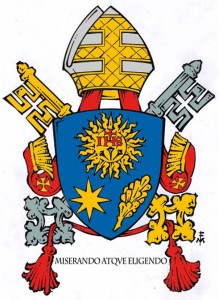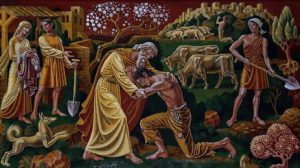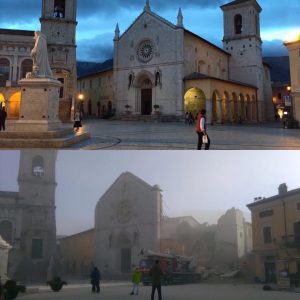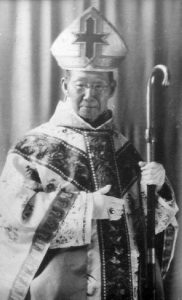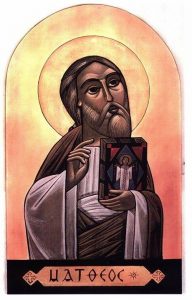The Basilica of Saint John Lateran is the cathedral church of the Bishop of Rome, the Pope, and not Saint Peter’s Basilica as many would think. The Liturgy given to us is the feast of the Dedication of the Lateran Basilica because it is the oldest and highest ranking of the four major basilicas in Rome. The Lateran is the oldest church in the West, constructed in the era of the Emperor Constantine and consecrated by Pope Sylvester in AD 324.
What do we celebrate with this feast? We don’t celebrate a building as magnificent as it is; we don’t honor the craftsmanship of the building as important and relevant as this idea is because of beauty and harmony in themselves. But, we do recognize as Pope Benedict XVI said on this feast in 2008: “The beauty and harmony of the churches, destined to give praise to God, also draws us human beings, limited and sinful, to convert to form a “cosmos,” a well-ordered structure, in intimate communion with Jesus, who is the true Saint of saints. This happens in a culminating way in the Eucharistic liturgy, in which the “ecclesia,” that is, the community of the baptized, come together in a unified way to listen to the Word of God and nourish themselves with the Body and Blood of Christ. From these two tables the Church of living stones is built up in truth and charity and is internally formed by the Holy Spirit transforming herself into what she receives, conforming herself more and more to the Lord Jesus Christ. She herself, if she lives in sincere and fraternal unity, in this way becomes the spiritual sacrifice pleasing to God.” Hence, we honor the fact that Jesus Christ through his Apostles and disciples founded a church for our salvation and the proper teaching of the Christian Gospel.
Again Benedict said: “God’s desire to build a spiritual temple in the world, a community that worships him in spirit and truth (cf. John 4:23-24). But this observance also reminds us of the importance of the material buildings in which the community gathers to celebrate the praises of God. Every community therefore has the duty to take special care of its own sacred buildings, which are a precious religious and historical patrimony. For this we call upon the intercession of Mary Most Holy, that she help us to become, like her, the “house of God,” living temple of his love” (November 9, 2008).
A feast with a universal observance, the Church tells us that the archbasilica, the ecclesiastical mother church, called “the mother and mistress of all churches of Rome and the world” (omnium urbis et orbis ecclesiarum mater et caput).
Saint Bernard, Sermon for the Dedication of a Church gives a particular insight into what we do liturgically:
Today’s feast, brothers, ought to be all the more devout as it is more personal. For other celebrations we have in common with other ecclesiastical communities, but this one is proper to us, so that if we do not celebrate it nobody will. It is ours because it concerns our church; ours because we ourselves are its theme. You are surprised and even embarrassed, perhaps, at celebrating a feast for yourselves. But do not be like horses and mules that have no understanding. Your souls are holy because of the Spirit of God dwelling in you; your bodies are holy because of your souls and this building is holy because of your bodies.
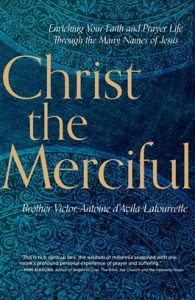 Brother Victor-Antoine d’Avila-Latourrette explores the absolute centrality of Christ in the prayer life of any Christian. The end result is a comprehensive confession of his faith and testimony to the many “names of Christ” that cross through historical, monastic, and mystical traditions. Keeping true to the hope for a unified Church, Christ the Merciful incorporates both Western and Eastern Orthodox sources.
Brother Victor-Antoine d’Avila-Latourrette explores the absolute centrality of Christ in the prayer life of any Christian. The end result is a comprehensive confession of his faith and testimony to the many “names of Christ” that cross through historical, monastic, and mystical traditions. Keeping true to the hope for a unified Church, Christ the Merciful incorporates both Western and Eastern Orthodox sources.